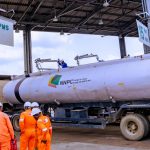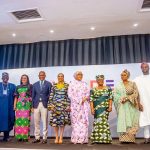Economy
Nigeria’s Inflation to Hit 12% in 2019—Fitch
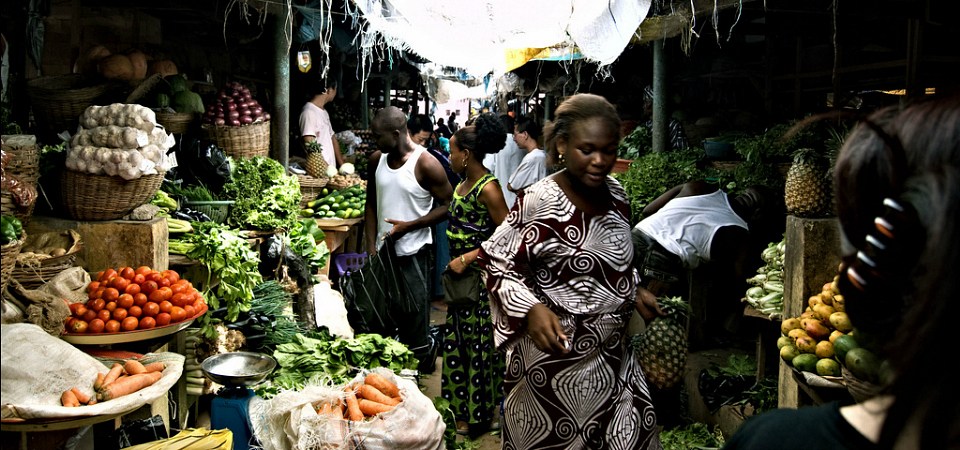
By Dipo Olowookere
Global rating agency, Fitch Ratings, has said the path to full economic stability and recovery for the Nigerian economy is very rough.
In a statement affirming the nation’s Long-Term Foreign-Currency Issuer Default Rating (IDR) at ‘B+’, Fitch said weak party discipline in parliament and frequent disagreements between the presidency and legislature point to a continued high risk of delays to parliamentary approval of key legislation.
The rating firm said it expects policy continuity with the implementation of only piecemeal reforms, resulting in slow progress on tackling long-standing impediments to growth and weaknesses in macroeconomic management.
While it projected that inflation will average close to 12 percent in 2019-2020, well above the projected current ‘B’ median of 4.8 percent, propped up by cost-push factors, the Gross Domestic Product (GDP) growth is anticipated to average 2.2 percent in 2019-2020, below its previous 10-year average of 4.2 percent and the current ‘B’ median of 3.4 percent.
Business Post reports that in April 2019, according to the National Bureau of Statistics (NBS), the country’s inflation rose to 11.37 percent year-on-year from 11.25 percent year-on-year in March 2019.
Fitch noted that high unemployment and inflation will constrain private consumption while investment is held back by tight credit supply, a weak business climate and regulatory uncertainty in the oil sector.
It said a large infrastructure deficit, which is illustrated by acute power supply shortages and security challenges, also dampen the medium-term growth outlook.
The renowned rating agency disclosed that Nigeria’s ratings are supported by the large size of its economy, a track record of current account surpluses and a relatively low general government (GG) debt-to-GDP.
“This is balanced against poor governance and development indicators, structurally low fiscal revenues and high dependence on hydrocarbons. The rating is also weighed down by subdued GDP growth and inflation that is higher than in rating peers,” it said.
Continuing, it stated that Nigeria’s fiscal performance mostly remains a function of fluctuations in oil revenues, noting that the implicit subsidy of petrol prices (around 0.6% of GDP in 2018), the gradual clearance of joint-venture (JV) cash call arrears (outstanding stock of 1% of GDP at end-2018) and the conversion of government oil proceeds to naira at a below-market exchange rate continue to constrain budget receipts from hydrocarbon extraction.
“Fitch estimates that the GG deficit narrowed to 3.6% of GDP (federal government, FGN: 2.3% excluding transfers to state and local governments, SLGs) in 2018 from 4.5% in 2017 (FGN: 3.2%), mostly reflecting the recovery in oil prices.
“Fitch forecasts the GG deficit to widen to 3.8% of GDP (FGN: 2.6%) in 2019 and further to 4.6% in 2020 (FGN: 3%) as the rise in oil production with the coming on stream of the Egina oilfield will be offset by the decline in oil prices under our baseline. Public finances are vulnerable to disruptions to production caused by recurrent acts of vandalism or other force majeure affecting Nigeria’s aging oil infrastructure. A $10 change per barrel in the Brent oil price against our assumptions would, all else equal, impact the GG balance by around 0.6% of GDP.
“Nigeria’s particularly low non-oil fiscal revenues averaging only 3.7% of GDP over 2016-2018 are a key rating weakness, reducing the fiscal space and resulting in a high fiscal Brent breakeven price of USD129 per barrel in 2019 and USD149 in 2020, according to Fitch’s estimates. A two-thirds rise in the minimum wage entered into force in April and could cause pressures on public finances, particularly for cash-strapped SLGs, although there is high uncertainty regarding its effective implementation date and fiscal cost. The government is contemplating offsetting measures, including a VAT rate increase, which faces strong opposition across the political spectrum.
“Interest payments consumed 27% of GG revenues (FGN: 53%) in 2018 based on Fitch’s estimates, double the current ‘B’ median of 13% and will rise to 30% of revenues (FGN: 65.6%) in 2020, highlighting the risks to debt sustainability arising from low fiscal receipts. The authorities aim to contain the rise in the interest cost by substituting external concessional and commercial borrowing to onerous domestic financing. They also plan to reduce debt through partial privatisations of oil JV assets, which we do not expect to materially reduce their oil revenues.
“GG debt will rise from 25% of GDP (FGN: 20%, including central bank overdrafts) in 2018 to 28.2% of GDP (FGN: 22.4%) in 2020, still well below the projected current ‘B’ median of 56%, under Fitch’s forecasts. Around 71% of GG debt was naira-denominated at end-2018, limiting refinancing and exchange rate risks but high direct and indirect foreign holdings of local-currency debt expose Nigeria to shifts in investor sentiment and global funding conditions. The debt of the Asset Management Corporation of Nigeria (AMCON) of 3.2% of GDP at end-2018 constitutes a contingent liability for the sovereign, and could rise in the context of high non-performing loans in the banking sector of 11.7% of total bank loans and an elevated proportion of restructured loans,” a statement from the agency said.
Economy
PENGASSAN Kicks Against Full Privatisation of Refineries
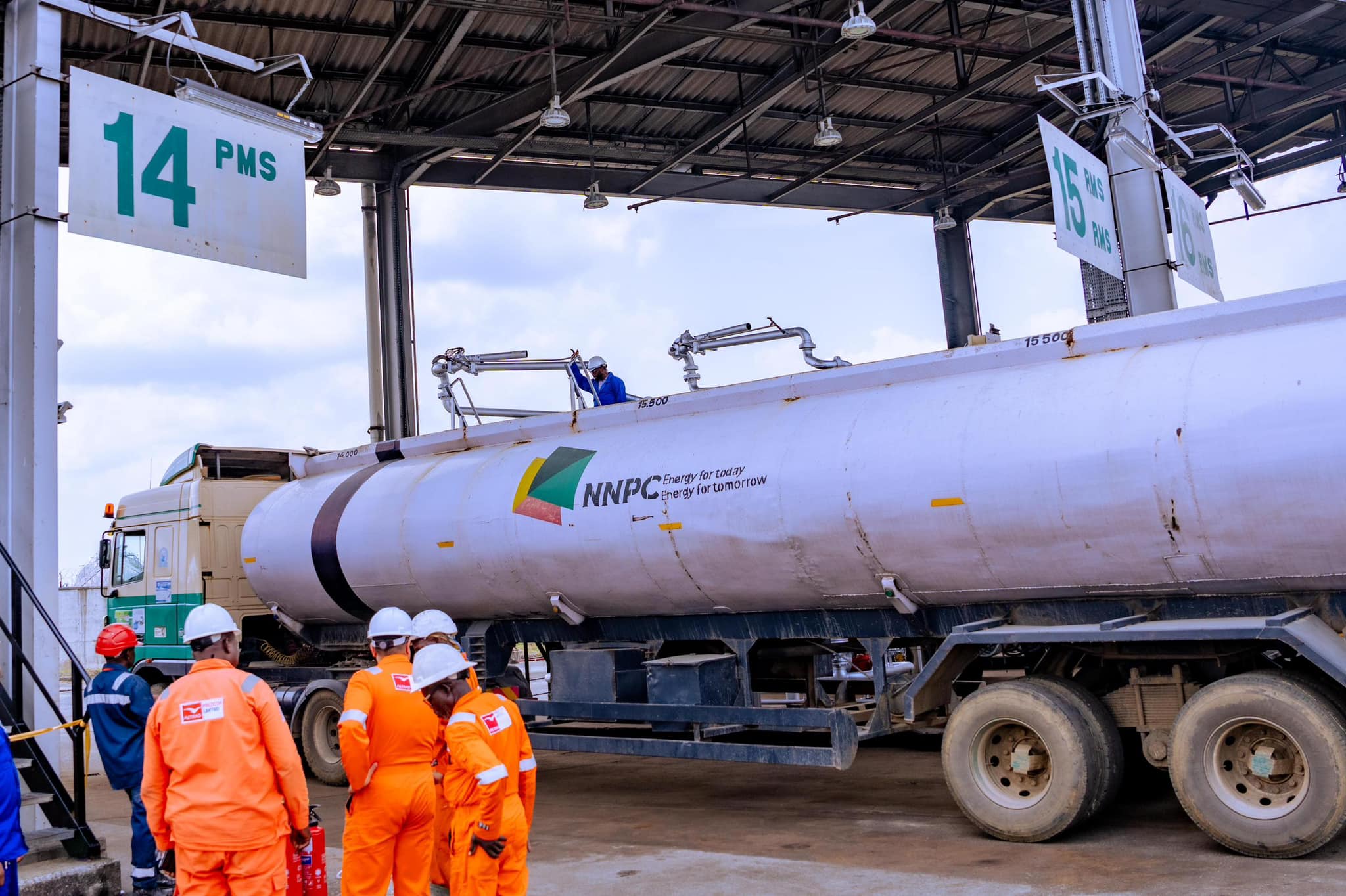
By Adedapo Adesanya
The Petroleum and Natural Gas Senior Staff Association of Nigeria (PENGASSAN) has warned against the full privatisation of the country’s government-owned refineries.
Recall that the Nigerian National Petroleum Company (NNPC) is putting in place mechanisms to sell the moribund refineries in Port Harcourt, Warri, and Kaduna.
However, this has met fresh resistance, with the President of PENGASSAN, Mr Festus Osifo, saying selling a 100 per cent stake would mean the government losing total control of the refineries, a situation he warned would be detrimental to Nigeria’s energy security.
Mr Osifo said the union was advocating the sale of about 51 per cent of the government’s stake while retaining 49 per cent, which he described as being more beneficial to Nigerians.
“PENGASSAN, even before the time of Comrade Peter Esele, had been advocating that government should sell its shares. The reason why we don’t want government to sell it 100 per cent to private investors is because of the issue bordering on energy security,” he said on Channels Television, late on Sunday.
“So, what we have advocated is what I have said earlier. If government sells 51 per cent stake in the refinery, what is going to happen? They will lose control, so that is actually selling. But for the benefit of Nigerians, retain 49 per cent of it.“
The PENGASSAN leader maintained that if the government had heeded the union’s advice in the past, the oil industry would be in a better state than it is today.
He addressed concerns in some quarters over whether investors would be willing to buy stakes in government-owned refineries, insisting that there are investors who would be interested.
“Yes, there are investors who surely will be willing to buy a stake in the refinery because our population in Nigeria is quite huge, and those refineries, when well maintained without political pressures and political interference, will work,” he said.
However, Mr Osifo warned that even if the government decides to sell a 51 per cent stake, it must ensure that a complete valuation is carried out to avoid selling the refineries cheaply.
Economy
SEC Gives Capital Market Operators Deadline to Renew Registration
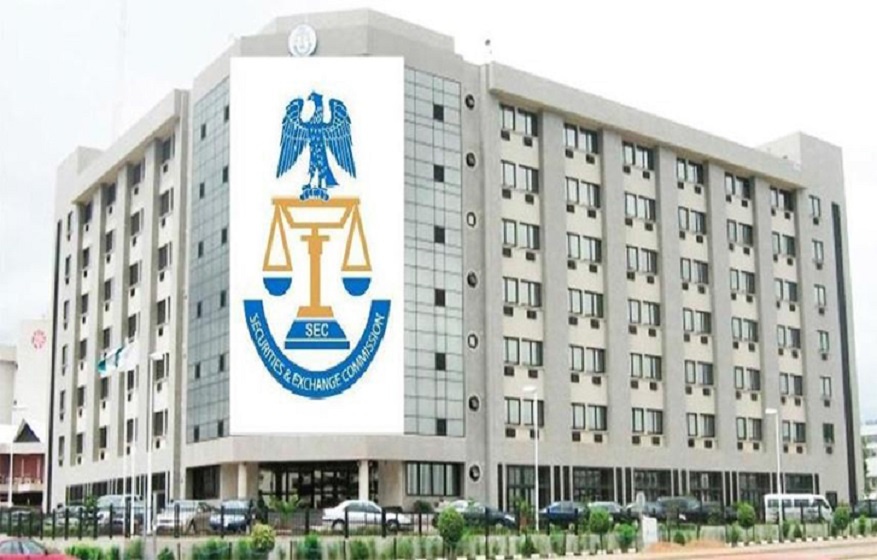
By Aduragbemi Omiyale
Capital market operators have been given a deadline by the Securities and Exchange Commission (SEC) for the renewal of their registration.
A statement from the regulator said CMOs have till Saturday, January 31, 2026, to renew their registration, and to make the process seamless, an electronic receipt and processing of applications would commence in the first quarter of 2026.
“These initiatives reflect our commitment to leveraging technology for faster, more transparent, and efficient regulatory processes.
“The commission is taking deliberate steps to make regulatory processes faster, more transparent, and technology-driven. We are investing in automation, database-supervision, and secure infrastructure to improve how we interact with the market,” the Director General of SEC, Mr Emomotimi Agama, was quoted as saying in the statement during an interview in Abuja over the weekend.
He noted that through the digital transformation portal, the organisation has automated registration and licensing end-to-end as operators can now submit applications, upload documents, and track approvals online, cutting down manual processing time and reducing the need for physical visits.
According to him, the agency has also rolled out the Commercial Paper issuance module, which allows operators to file documents, monitor progress, and receive approvals electronically while feedback from early users shows a clear improvement in turnaround time.
“Work is ongoing to automate quarterly and annual returns submissions, with structured templates and system checks to ensure accuracy. A returns analytics dashboard is also in development to support risk based supervision and exception reporting.
“To back these changes, we have started upgrading our IT infrastructure, servers, storage, networks, and security layers, to boost speed and reliability.
“Selective cloud migration is underway for platforms that need scalability and external access, while core internal systems remain on premisev5p for now as we assess security and cost implications.
“At the same time, we are strengthening data integrity and cybersecurity with vulnerability assessments and planned penetration testing once automation and migration phases are stable.
“These efforts show our commitment to building a modern, resilient regulatory environment that supports efficiency, investor confidence, and market stability,” he stated.
Mr Agama affirmed that the nation’s capital market was clearly on a path toward digital transformation adding that there is an urgent need for regulatory clarity on advanced technologies, targeted support for smaller firms, and capacity-building initiatives.
“A phased and proportionate approach to regulating emerging technologies such as AI is essential, complemented by internal readiness through supervisory technology tools.
“Furthermore, investor education, particularly among younger demographics, will be critical to future-proof participation and drive fintech adoption.
“Innovation is vital, but it must be accompanied by responsibility. As operators embrace automation, artificial intelligence, and data-driven tools, they bear a duty to ensure ethical, secure, and compliant deployment. Safeguarding investor data, preventing market abuse, and maintaining operational resilience are non-negotiable,” he declared.
The SEC DG said that ultimately, responsible technology adoption is about building trust, the cornerstone of our markets saying that trust thrives on fairness, transparency, accountability, and regulatory compliance.
He, therefore, urged operators to uphold these principles adding that it will not only protect investors and systemic stability but also strengthen the long-term credibility and competitiveness of the Nigerian capital market.
Economy
No Discrepancies in Harmonised, Gazetted Tax Laws—Oyedele

By Adedapo Adesanya
The Chairman of the Presidential Fiscal Policy and Tax Reforms Committee, Mr Taiwo Oyedele, has said there are no discrepancies in the tax laws passed by the National Assembly and the gazetted versions made available to the public.
Last week, a member of the House of Representatives, Mr Abdussamad Dasuki, raised worries about the differences between its version and that gazetted by the presidency.
However, speaking on Channels Television’s Morning Brief on Monday, Mr Oyedele claimed what has been circulating in the media was fake.
“Before you can say there is a difference between what was gazetted and what was passed, we have what has not been gazetted. We don’t have what was passed,” he said.
“The official harmonised bills certified by the clerk, which the National Assembly sent to the President, we don’t have a copy to compare. Only the lawmakers can say authoritatively what we sent.
“It should be the House of Representatives or Senate version. It should be the harmonised version certified by the clerk. Even me, I cannot say that I have it. I only have what was presented to Mr President to sign.”
Mr Oyedele stated that he reached out to the House of Representatives Committee regarding a particular Section 41 (8), which states, “You have to pay a deposit of 20 per cent.”
He noted that the response given by the committee was that its members had not met on the issue.
“I know that particular provision is not in the final gazette, but it was in the draft gazette. Some people decided that they should write the report of the committee before the committee had met, and it had circulated everywhere.
“What is out there in the media did not come from the committee set up by the House of Representatives. I think we should allow them do the investigation,” Mr Oyedele added.
In June, President Bola Tinubu signed the four tax reform bills into law, marking what the government has described as the most significant overhaul of the country’s tax system in decades.
The tax reform laws, which faced stiff opposition from federal lawmakers from the northern part of the country before their passage, are scheduled to take effect on January 1, 2026.
The laws include the Nigeria Tax Act, the Nigeria Tax Administration Act, the Nigeria Revenue Service (Establishment) Act, and the Joint Revenue Board (Establishment) Act, all operating under a single authority, the Nigeria Revenue Service.
-

 Feature/OPED6 years ago
Feature/OPED6 years agoDavos was Different this year
-
Travel/Tourism9 years ago
Lagos Seals Western Lodge Hotel In Ikorodu
-

 Showbiz3 years ago
Showbiz3 years agoEstranged Lover Releases Videos of Empress Njamah Bathing
-

 Banking7 years ago
Banking7 years agoSort Codes of GTBank Branches in Nigeria
-

 Economy3 years ago
Economy3 years agoSubsidy Removal: CNG at N130 Per Litre Cheaper Than Petrol—IPMAN
-

 Banking3 years ago
Banking3 years agoFirst Bank Announces Planned Downtime
-

 Banking3 years ago
Banking3 years agoSort Codes of UBA Branches in Nigeria
-

 Sports3 years ago
Sports3 years agoHighest Paid Nigerian Footballer – How Much Do Nigerian Footballers Earn




